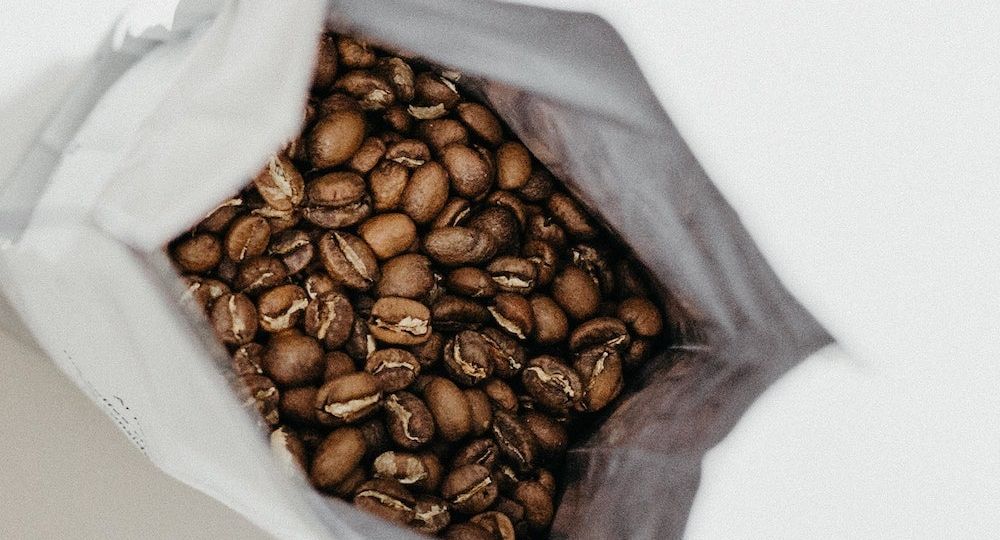
Organic fair trade coffee beans embody a commitment to ethical sourcing and environmental stewardship. These beans are cultivated without synthetic pesticides or fertilizers, ensuring a cleaner and more sustainable agricultural process.
Fair trade certification, meanwhile, guarantees that coffee producers receive a fair price for their harvest, fostering economic stability and community development. The amalgamation of these practices not only elevates the quality of coffee but also champions the well-being of farmers and their communities, creating a positive ripple effect across global coffee-producing regions.
Key Takeaways
- The significance of choosing organic fair trade coffee extends beyond the cup.
- For the environment, it means reduced chemical runoff and healthier ecosystems.
- For growers, it translates to fair wages and improved living conditions. Certifications play a crucial role, serving as a badge of honor that assures consumers of the coffee’s ethical and quality standards.
- By supporting these practices, consumers contribute to sustainable development and promote a culture of ethical consumerism, ensuring that every sip reflects a commitment to making a difference.
The Certification Process
The journey towards certification is meticulous, designed to uphold the highest standards of organic agriculture and fair trade principles. For organic certification, farms must adhere to practices that foster soil health and biodiversity, avoiding genetically modified organisms (GMOs) and chemical pesticides.
Fair trade certification, on the other hand, focuses on social and economic criteria, ensuring that farmers receive a minimum price for their coffee plus an additional premium to invest in community projects. These rigorous standards are not just markers of quality but also signify a farm’s dedication to ethical practices and sustainability.
The Role of Fair Trade Organizations
Fair trade organizations are the backbone of the certification process, providing support, resources, and advocacy for coffee farmers. They facilitate direct trade relationships, bypassing traditional middlemen to ensure farmers receive a fairer share of the profits.
By providing access to finance, education, and technical assistance, these organizations empower farmers to improve their agricultural practices, enhance quality, and navigate the challenges of the global coffee market. Through their efforts, fair trade organizations foster a more equitable and sustainable coffee industry, where farmers are respected as essential contributors to the global coffee culture.
The Environmental and Social Impact
Organic farming practices play a crucial role in benefiting the ecosystem. By avoiding synthetic pesticides and fertilizers, organic coffee farming helps to preserve soil health, conserve water, and maintain biodiversity. This approach supports a healthy environment, promoting a balance that encourages wildlife and beneficial insects to thrive alongside coffee plants.
Additionally, organic practices often involve crop rotation and other sustainable farming methods that can improve soil fertility and reduce erosion, ensuring that land remains productive for future generations.
The social benefits of fair trade are equally significant, offering improved living conditions and fostering community development. Fair trade practices ensure that coffee farmers receive a fair price for their crops, providing them with a stable income that can improve their quality of life.
This financial stability allows for access to better healthcare, education, and housing. Furthermore, the fair trade premium—a sum paid on top of the fair price—can be invested in community projects, such as building schools, improving local infrastructure, or developing sustainable agriculture programs. These initiatives empower communities, reduce poverty, and promote social equity.
Popular Organic Fair Trade Coffee Brands and Their Stories
Several brands stand out for their commitment to fair trade and organic practices, including Equal Exchange, Tiny Footprint, and Counter Culture Coffee. Equal Exchange, one of the pioneers in fair trade coffee, works directly with small-scale farmers around the world to ensure they receive fair compensation. Their commitment to organic farming helps preserve the environment while producing high-quality coffee.
Tiny Footprint Coffee is known for its carbon-negative approach. For every pound of coffee sold, they donate a portion of proceeds to reforestation projects in Ecuador’s Mindo cloud forest, effectively offsetting the carbon footprint of their coffee production. This innovative model demonstrates a profound commitment to environmental conservation and sustainable coffee farming.
Counter Culture Coffee emphasizes transparency and sustainability in its operations. They engage in direct trade with coffee producers, ensuring fair compensation and fostering long-term relationships. Their dedication to sustainability is evident in their efforts to reduce waste and improve resource efficiency throughout their roasting and distribution processes.
Brewing the Perfect Cup
To preserve the unique flavors of organic fair trade coffee, start with fresh, cold water, preferably filtered to remove any impurities that could affect taste. Use about 2 tablespoons of coffee for every 6 ounces of water, adjusting to taste. Grinding beans just before brewing maintains their full flavor profile—aim for a medium grind for drip coffee makers or a fine grind for espresso.
Ensure your brewing equipment is clean, as residual oils from previous brews can impact flavor. Finally, brewing at the right temperature, between 195°F to 205°F, extracts the best flavor without bitterness.
FAQs
What makes organic fair trade coffee different from regular coffee? Organic fair trade coffee is grown without synthetic pesticides or fertilizers and is purchased from farmers at a fair price, ensuring ethical treatment and sustainable practices.
How can I verify certifications? Look for official certification labels on packaging, such as the USDA Organic seal or the Fair Trade Certified™ mark. These indicate compliance with strict standards.
Does organic fair trade coffee taste different? Yes, it often has a cleaner, more distinct flavor profile due to the absence of chemical residues and the emphasis on quality and sustainable farming practices.
Final Thoughts
Supporting organic fair trade coffee beans is more than a choice of taste; it’s a commitment to ethical consumption, environmental conservation, and social equity. By choosing these coffees, consumers contribute to a market that values the health of the planet and the well-being of its people.
This conscious decision fosters a more sustainable and just coffee industry, ensuring that the pleasure of a perfect cup carries with it the promise of a better world for all involved.









